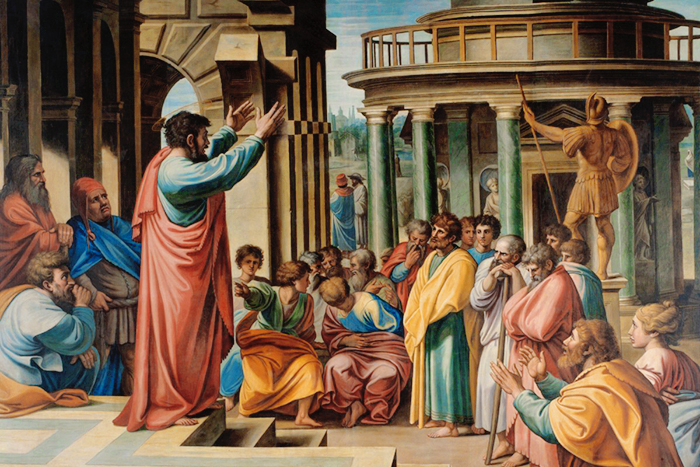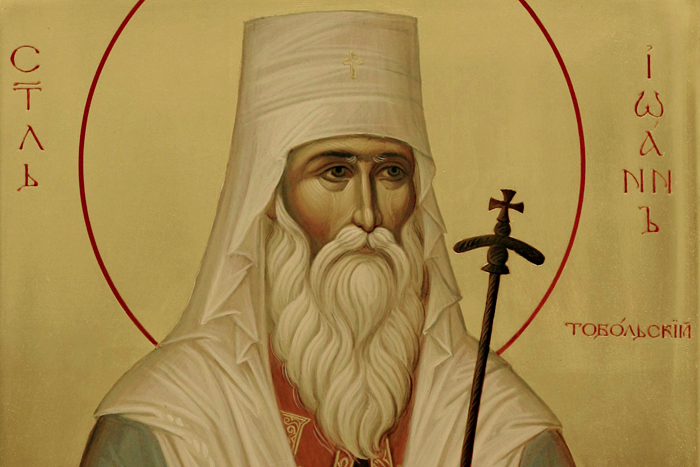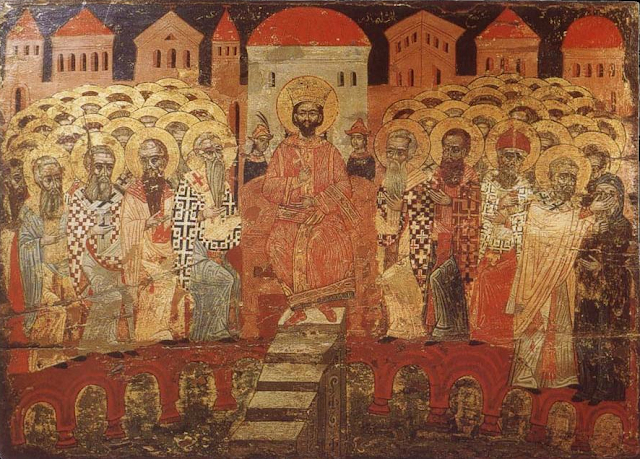
I would like to begin by telling two stories. The first is a story from the life of St. Silouan of Mt. Athos (in the story, Fr. Sophrony of Essex is the narrator and St. Silouan is the Staretz):
I remember a conversation he had with a certain Archimandrite who was engaged in missionary work. This Archimandrite thought highly of the Staretz and many a time went to see him during his visits to the Holy Mountain. The Staretz asked him what sort of sermons he preached to people.
The Archimandrite, who was still young and inexperienced, gesticulated with his hands and swayed his whole body, and replied excitedly, “I tell them, ‘Your faith is all wrong, perverted. There is nothing right, and if you don’t repent, there will be no salvation for you.’”
The Staretz heard him out, then asked, “But please tell me, holy archmandrite, do they believe in the Lord Jesus Christ – that He is the true God?”
“Yes, they do believe that.”
“And do they honour the Holy Mother?
“They honour Her, but they teach erroneous things about Her.”
“And what about the saints – do they acknowledge their existence?”
“Yes, they do, but ever since they have severed themselves from the Church, what kind of saints could they have?”
“Do they perform services in Churches? Do they read the word of God?”
“Yes, and they also have temples and services, but if you could only see how inferior their services are to ours – how cold, how soul-less they are!”
“Holy archimandrite, their souls obviously feel that they are acting correctly in believing in Christ, in honouring the Holy Mother and the saints – whom they invoke in their prayers. That is why, when you tell them that their faith is illegitimate, they will not listen to you… But if you told the people that they are right in believing in God, that they are right in honouring the Holy Mother and the saints, and in going to church for services and praying at home, that they are right in reading the Word of God and all the rest, except that here and there they have a few incorrect theories which should be corrected, then everything will be just fine and pleasing to God, and by the Grace of God, everyone will be saved…”
The second story is a story from my own life. I was young, in my early twenties, and had recently become Orthodoxy but had not yet entered the monastery. I wrote a post one night on Facebook about freedom. I deleted my Facebook account when I joined the monastery, so I do not have a record of precisely what I said. But as best as I can recall, I wrote that America, which prides itself above all else on its freedom and its liberty, is in reality a land of slavery to materialism and consumerism. I wrote that we have been deceived into believing that we are free by allowing ourselves to be satisfied with a false and external counterfeit of freedom. I wrote that in truth we are being held in inner spiritual bondage, and that most of the time we have no idea that we are slaves at all.
I was absolutely shocked at the level of vitriol and anger which I received for writing that post, even from the most meek and good-natured of my friends. It honestly blew me away. I could not in any way understand why my words had provoked such a violent and bitter reaction.
I think I understand that reaction better now. I was like the young, overzealous missionary archimandrite in Fr. Sophrony’s story about St. Silouan. I was attacking something very precious to the hearts of my listeners. I spoke only of what was wrong with this country, and therefore I made myself into an enemy of those who saw something beautiful in it. And so it is small wonder that my words did no good to anybody.
I suspect that very often we Christians make this same mistake with the secular radicals of our society. Misguided and mistaken though they are, they are nevertheless doing battle for that which they hold dear: compassion, mercy, freedom, and love. And when we make ourselves into their enemies, in their eyes we make ourselves also into the enemies of the noble principles to which they have dedicated themselves, of all that they have found to be good and true and beautiful in their world.
How seldom do we affirm anything which these sincere and idealistic people believe! How rarely do we recognize the common ground that yet exists between us. Granted, that common ground seems to be diminishing with each passing day — but that is all the more reason to make a beginning now, while we still can. After all, even the most poisonous lies contain a seed of truth. And it is our task as Christians to find that seed, and to help it grow.
When St. Paul arrived in pagan Athens and looked upon the magnitude of their idolatry, he did not rail against their errors and iniquities. He spoke rather of the one altar that he found to “the unknown god,” and proclaimed to them that Christ was that very god whom they worshipped without knowing it.
We must take great care to find such altars today. The world still longs to worship Christ, in fact perhaps more so now than at any time since St. Paul preached that sermon in the Areopagus two millennia ago. We must search for that longing, and we must speak to that longing. May God have mercy on us if we are found to have reviled that very longing in the hearts of His children, having looked merely upon the idolatry by which it is ignorantly expressed.



